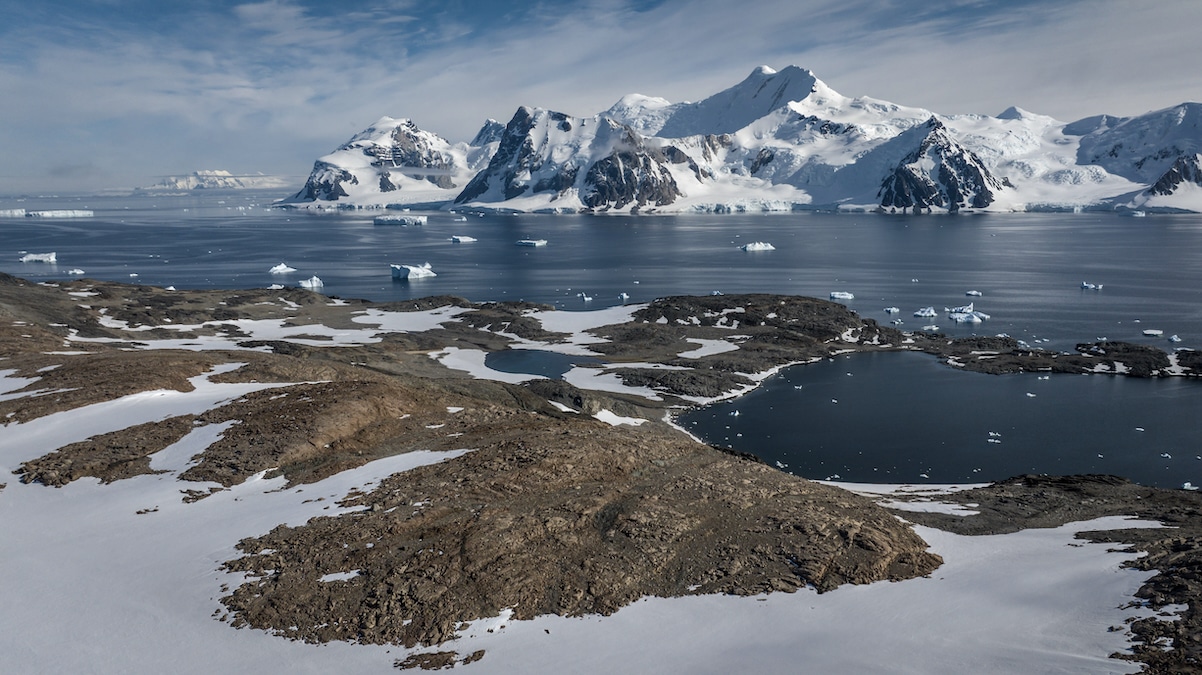Antarctic Sea Ice Alarmingly Low for 3rd Year in a Row

 Why you can trust us
Why you can trust us
Founded in 2005 as an Ohio-based environmental newspaper, EcoWatch is a digital platform dedicated to publishing quality, science-based content on environmental issues, causes, and solutions.
For the third consecutive year, the amount of Antarctic sea ice has fallen below two million square kilometers — 772,204.3 square miles.
According to data from the National Snow and Ice Data Center (NSIDC), before 2022, the threshold had not been crossed since satellite measurements began in 1979, reported The Guardian.
“Sea ice extent in the Antarctic started the year at 6.37 million square kilometers (2.46 million square miles), or sixth lowest in the satellite record for January 1. As the melt season continued in the Southern Hemisphere, a rapid decline in daily extent led to it ending the month at 2.58 million square kilometers (996,000 square miles), tying for second lowest with 2017 for that date,” NSIDC said. “Antarctic sea ice extent for January overall averaged 3.96 million square kilometers (1.53 million square miles), tying for fourth lowest extent with 2022. Extent was particularly low in the Ross, Bellingshausen, and Amundsen Seas, but has been near average in the Weddell Sea. Little ice remains in the East Antarctic sectors.”
The continent reaches its lowest sea ice extent in February of each year — the peak of Antarctic summer.
The record low was set in February of last year, at 1.78 million square kilometers, or 687,261.8 square miles, The Guardian reported. On February 18, 2024, the five-day average for sea ice was 1.99 million square kilometers, falling to 1.98 million three days later. Scientists won’t know the minimum for this year for a week or two.
“But we’re confident the three lowest years on record will be the last three years,” said Will Hobbs, a sea ice researcher and physical oceanographer for the Australian Antarctic Program Partnership, as reported by The Guardian.
In September, Antarctica reaches its annual maximum sea ice extent. However, last year’s was the lowest ever recorded by approximately one million square kilometers.
Lower amounts of sea ice can mean shrinking habitats for seals, penguins, phytoplankton and other of the ecosystem’s animal species.
Solar radiation is reflected by sea ice, so less ice means more ocean warming, which can lead to ice loss on land as well, which contributes to global sea level rise.
Walt Meier, NSIDC senior research scientist, said experts aren’t yet sure of the overarching cause behind the record low sea ice, but that “global warming certainly could be a factor,” as the Daily Mail reported.
“It appears that warm ocean temperatures are important, but other factors may be in play, including wind patterns,” Meier told MailOnline. “We have only 45 years of high quality data, which still may not capture all of the variability in the Antarctic sea ice. However, since 2016, Antarctic sea ice has mostly been much lower than normal with record lows at times.”
Meier said the regrowth of the ice after the summer melt “is only 1-2 metres [thick],” reported The Guardian.
“With the very low maximum last September, the ice was probably thinner on average in many areas, but it’s hard to say how much of an effect it has had on the rate of melt and the approaching minimum,” Meier said.
While the investigation into the decline in Antarctic sea ice is ongoing, scientists are concerned that global heating could be a factor, particularly the warming of the Southern Ocean.
University of Exeter glaciologist professor Martin Siegert told MailOnline that, while the cause was not clear, it didn’t “actually matter that much.”
“We certainly can’t afford to assign it to variability as some excuse for not stopping fossil fuel burning,” Siegert said.
Last year, research led by Ariaan Purich — a Monash University climate scientist who specializes in the Southern Ocean and Antarctica — concluded that Antarctica’s sea ice may have experienced a “regime shift” likely driven by subsurface ocean warming approximately 328.1 feet below, The Guardian reported.
“What we need is sustained measurements of ocean temperature and salinity underneath the sea ice. We need improvements in our climate models,” Hobbs said, as reported by The Guardian. “And we need time.”
Subscribe to get exclusive updates in our daily newsletter!
By signing up, you agree to the Terms of Use and Privacy Policy & to receive electronic communications from EcoWatch Media Group, which may include marketing promotions, advertisements and sponsored content.

 233k
233k  41k
41k  Subscribe
Subscribe 




